International
Journalists in Latin America lack protection due to weak laws and few resources
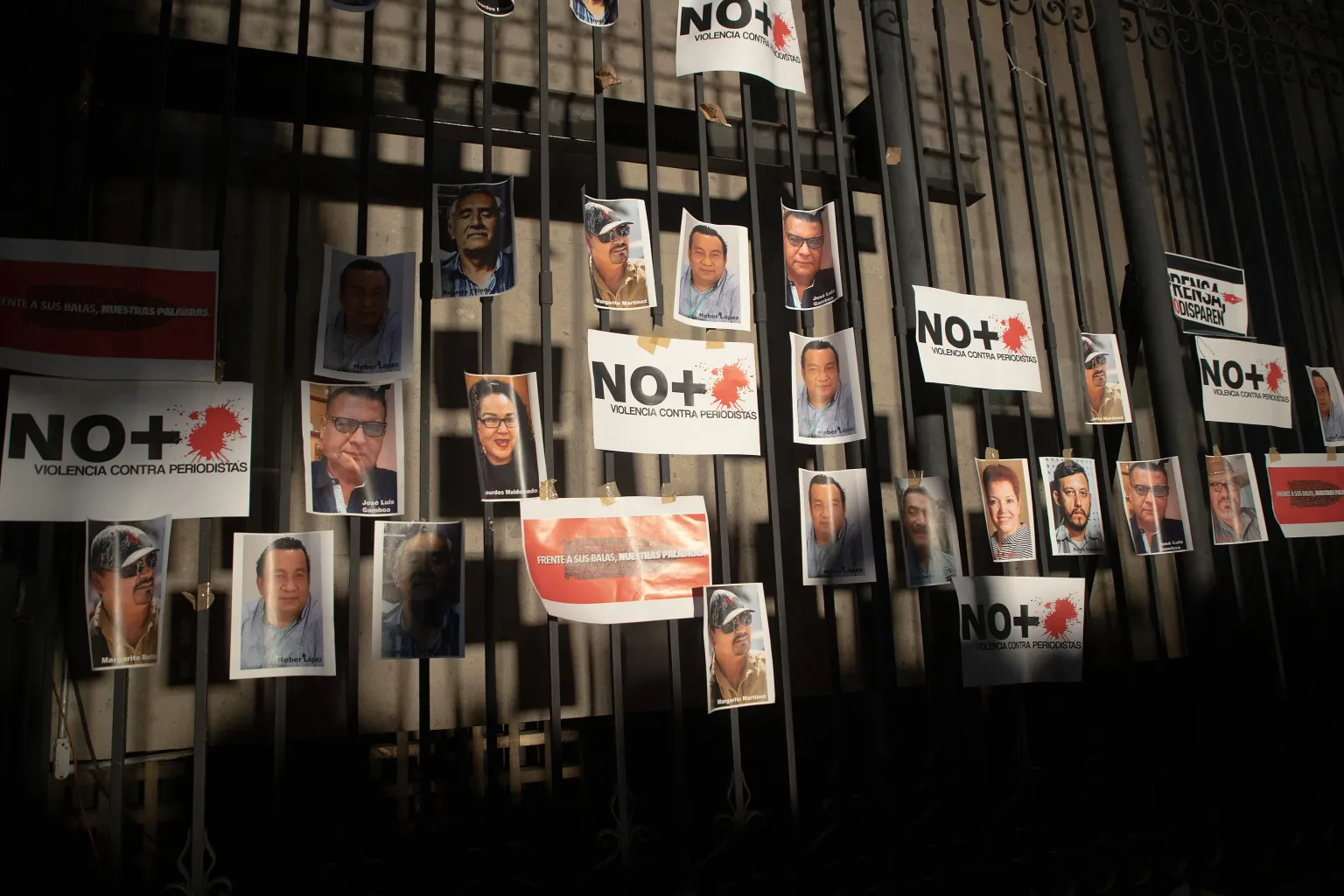
Reporters Without Borders (RSF) criticized on Tuesday that journalists in Latin America lack protection due to “weak” legal frameworks and “insufficient” resources from States to guarantee the safety of media professionals.
That is why the biggest challenge for the region is to turn the protection of journalists into a “political priority,” says RSF in its report ‘Protection mechanisms in Latin America: how to strengthen this fragile shield for journalists’.
The organization recalls that 338 journalists have been murdered in Latin America since 2000.
The “systematic violence” they suffer translates into deaths, threats, arrests and persecutions by involving themselves in the denunciation of cases of corruption, organized crime and abuse of power.
The countries analyzed: Guatemala, Ecuador and Peru
RSF analyzes the situation of countries that have recently implemented mechanisms to strengthen the safety of journalists (Guatemala, Ecuador and Peru) and those that are in the process of approving measures of this type (Chile and Paraguay).
In Peru, the allocated budget does not grow at the same rate as requests for protection by journalists, whose situation has worsened due to the political and social crisis in the Andean country.
In just two years, these demands have multiplied by six (247 in 2023, compared to 40 in 2021), while the budget has only increased by 40% in the same period.
RSF criticizes Guatemala’s limited action to protect journalists, accentuated by the lack of parliamentary support of the current president, Bernardo Arévalo, which makes it even more difficult to approve specific and effective mechanisms.
In Ecuador, the state of emergency declared by its president, Daniel Noboa, after a wave of unprecedented violence has worsened the economic, technical and institutional endowment of the Interinstitutional Committee for the Protection of Journalists, which is currently trying to get support from embassies and associations.
Projects for the protection of journalists in Chile and Paraguay
With regard to the draft new legislation, the Chilean Senate has received the draft of a new protection law for journalists and media, a text that RSF considers devoid of detail in terms of budget and legal framework.
“It does not explicitly mention any department, agency or institution that is held responsible,” he highlights in his report.
In Paraguay, another protection law is also pending ratification by the Senate since April 2023. It is a text that provides for the formation of an independent committee that has the highest authority to evaluate the situation.
According to RSF, the current conservative majority in the Upper House of Paraguay is an obstacle to maintaining the main provisions of the law that journalists are trying to maintain based on political support.
International
Mexican influencer “La Nicholette” kidnapped in exclusive area of Culiacán

The content creator known as “La Nicholette,” also referred to as “La Muchacha del Salado,” was kidnapped Tuesday afternoon in Isla Musalá, one of the most exclusive residential areas of Culiacán, capital of the northern Mexican state of Sinaloa, according to local media reports on Wednesday.
The abduction was captured by the security camera of the young woman’s vehicle, a lilac-colored Tesla Cybertruck, which was later found abandoned at the scene.
Video footage circulating on social media shows a masked man carrying a long firearm preventing the influencer from entering her vehicle, while another individual forces her into a white sedan, reportedly an older-model Toyota Corolla.
According to media reports, the incident occurred at approximately 5:00 p.m. local time (2300 GMT) at the intersection of Tachichilte Avenue and San Esteban Street, within the Musalá residential area.
Authorities have not yet released official details regarding the victim’s whereabouts or the motives behind the kidnapping.
International
Major winter storm to blanket U.S. and Canada with snow, ice and arctic cold
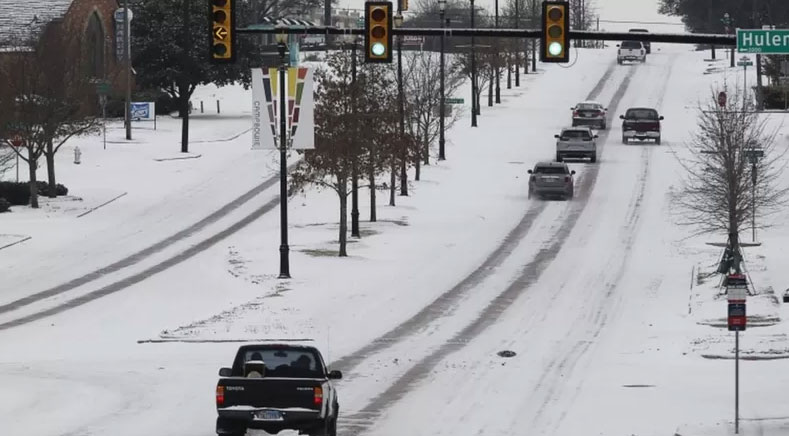
A major winter storm — the strongest of the season so far — is threatening large areas of the United States and Canada, bringing heavy snowfall, ice accumulation and an Arctic cold wave expected to affect millions of people, particularly toward the end of the week.
“A large winter storm will produce heavy snow, sleet and freezing rain from the southern Rockies through the Plains and the south-central region beginning Friday, then move eastward toward the East Coast by Sunday,” the U.S. Weather Prediction Center (WPC) warned.
The storm is expected to begin with intense snowfall in Colorado on Friday and spread eastward, leaving a wide snow band across Texas, Kansas, Missouri and Tennessee, before reaching the East Coast and impacting major cities such as Washington, Boston and New York.
According to the National Weather Service (NWS), temperatures could drop below -10°C (14°F) even in parts of the southeastern United States. However, the most serious concern is the wind chill, as strong winds accompanying the storm could drive perceived temperatures down to below -45°C (-49°F) in some areas.
Forecasters warn that these well-below-average temperatures could persist through the end of January and into early February, particularly across the Ohio Valley and parts of the East Coast.
Snow accumulations are expected to exceed 15 centimeters (six inches) in cities such as New York and Washington, raising concerns about travel disruptions, power outages and hazardous conditions.
International
Trump announces preliminary NATO agreement on Greenland, suspends tariffs on Europe
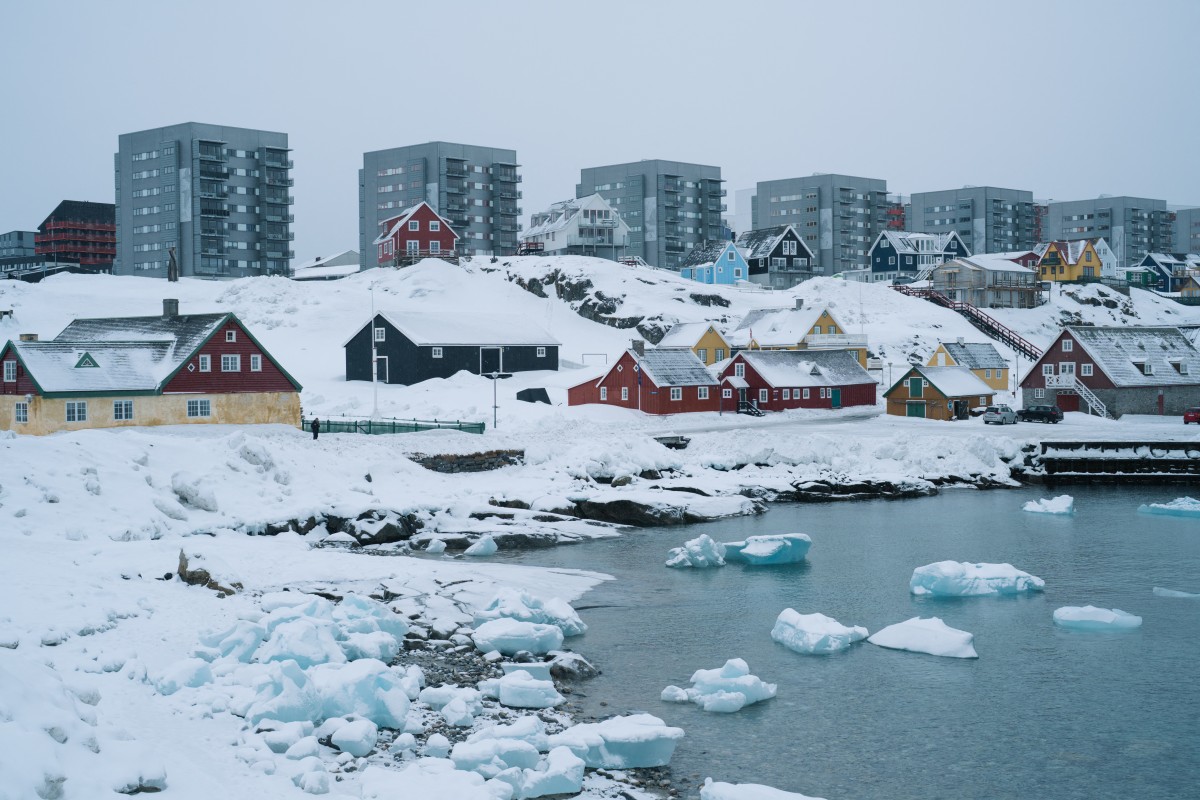
The President of the United States confirmed that the agreement will be beneficial for all members of the Atlantic Alliance and has halted the trade sanctions previously threatened against Europe.
U.S. President Donald Trump announced on Wednesday from Davos, Switzerland, a preliminary agreement with NATO regarding Greenland, describing it as “very good for the United States and all NATO countries.” He also confirmed the suspension of tariffs that his administration had warned it would impose on eight European countries starting February 1.
In a statement published on his Truth Social platform, Trump said the agreement followed a productive meeting with NATO Secretary General Mark Rutte and establishes a framework for a future joint solution concerning Greenland and the Arctic region.
“This solution, if implemented, will be very beneficial to the United States of America and to all NATO countries,” the president stated, underscoring the strategic importance of the Danish autonomous territory, which has been at the center of heightened diplomatic tensions in recent weeks.
Trump added that the preliminary understanding also includes discussions related to the Golden Dome missile defense system, particularly in the context of Greenland. He noted that further details would be released as negotiations progress.
As a result of the agreement, the administration suspended the tariffs it had previously announced against countries such as Germany, France and Denmark, which Trump had criticized for conducting military exercises on the Arctic island without prior coordination with Washington.
The president assigned Vice President JD Vance, Secretary of State Marco Rubio, and Special Envoy Steve Witkoffto lead the negotiations, stating that he will receive direct updates on their progress.
The announcement marks a new chapter in U.S.-European tensions over Arctic geopolitics, particularly regarding Greenland, a territory Trump has repeatedly expressed interest in acquiring for global security and strategic defense reasons.
-

 International4 days ago
International4 days agoU.S. deportation flight returns venezuelans to Caracas after Maduro’s ouster
-

 International2 days ago
International2 days agoDeath toll from southern Spain train crash rises to 40
-

 Central America2 days ago
Central America2 days agoGuatemala raises police death toll to nine after gang violence escalates
-

 Central America3 days ago
Central America3 days agoGuatemala prison uprisings leave 46 guards held by gangs
-

 International2 days ago
International2 days agoOver 160 christian worshippers kidnapped in Kaduna Church attacks
-

 International1 day ago
International1 day agoDaily Mail publisher insists reports relied on legitimate sources amid privacy trial
-

 International3 days ago
International3 days agoChile declares state of catastrophe as wildfires rage in Ñuble and Biobío
-

 International4 days ago
International4 days agoFormer South Korean President Yoon sentenced to five years in prison
-

 International2 days ago
International2 days agoSpain’s Prime Minister pledges transparency after train crash kills at least 39
-
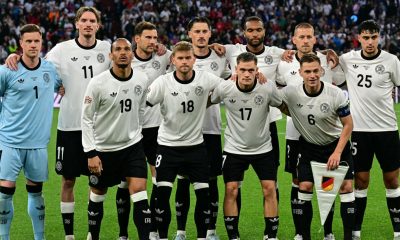
 International1 day ago
International1 day agoGermany says football bodies alone will decide on possible World Cup boycott
-

 International51 minutes ago
International51 minutes agoTrump announces preliminary NATO agreement on Greenland, suspends tariffs on Europe
-
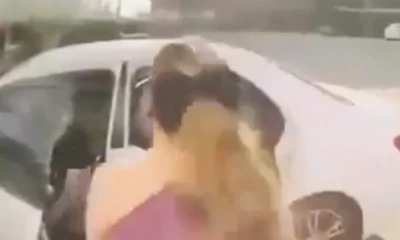
 International44 minutes ago
International44 minutes agoMexican influencer “La Nicholette” kidnapped in exclusive area of Culiacán
-

 International47 minutes ago
International47 minutes agoMajor winter storm to blanket U.S. and Canada with snow, ice and arctic cold


























